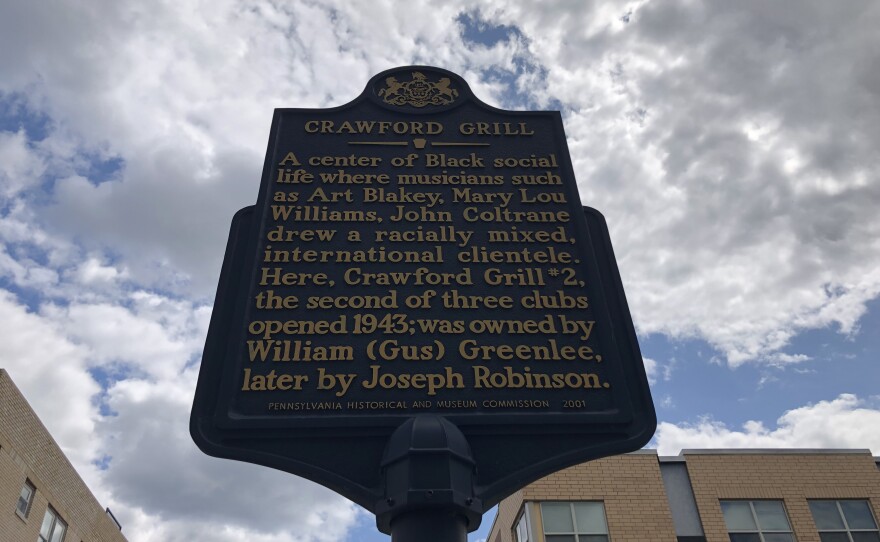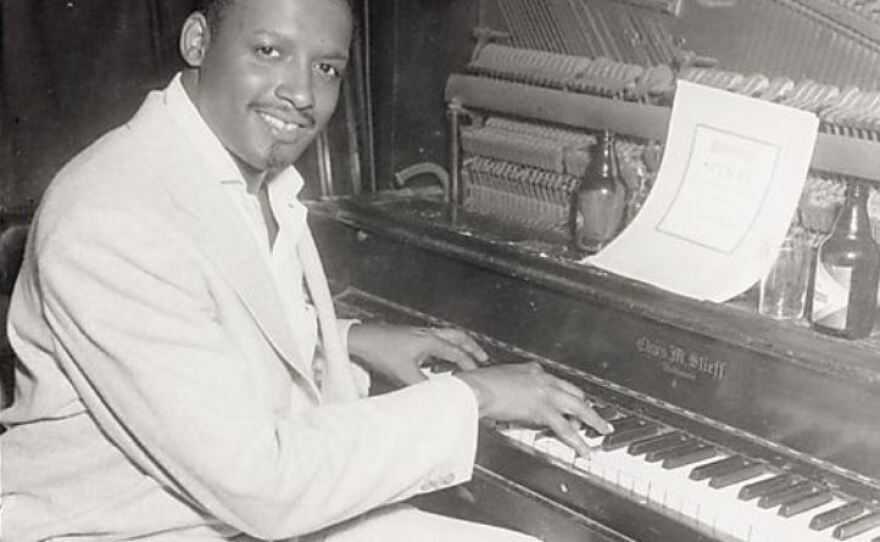Many of the country’s most prolific piano players got their start in Pittsburgh. The city has long cultivated a deep bench of musical talent from jazz greats to classical performers.
Good Question! asker Wesley Gill loves the piano and asked if Pittsburgh ever had a piano factory.
“If so, where [were they] located and what [was] the name of the factory or factories?” Gill asked.

More than 200 years ago, Charles Rosenbaum placed a small advertisement in a local newspaper, according to Heinz History Center historian Anne Madarasz. He wanted to drum up business for the pianos he built in Pittsburgh. He sold the instruments for $250-350.
“He advertises in the 1814 newspapers that he’s recently opened a shop in Pittsburgh,” she said. “That shop burns down in January of 1816 and he never appears in newspapers or city directories again.”
At the time, Pittsburgh was experiencing substantial growth. The iron, glass and coal industries helped position the city as a commercial center. For there to be a piano manufacturer, Madarasz said, there had to be interest in the market and customers who could pay.
“The piano becomes kind of a symbol of refinement or civilization or culture,” Madarasz said. “The ability to have one in your home signifies the same. It’s a great object to talk about not just music, music history [and] the making of pianos, but also the city at that point in time.”
Rosenbaum’s departure didn’t spell the end of piano sales in Pittsburgh. While most pianos were imported, the talent wasn’t. The city has produced some incredible players over the years, including the man known as the “Father of American music,” Stephen Foster.
Greats of the 88
Earl “Fatha” Hines immediately stands out in the mind of Heinz History Center Director of African American Programs Sam Black when he’s asked about great Pittsburgh musicians. The Duquesne, Pa. native was born to a musical family and began playing in jazz clubs and on riverboats as a youngster. Hines was a stride pianist, Black said, which is a rhythmic and innovative technique.

“You're talking about someone who, the different changes over a period of time or genres of jazz,” Black said.
Hines played with trumpeter Louis Armstrong, and attracted a lot of young talent. One of those young players was another Pittsburgh native, Mary Lou Williams. A versatile musician, Black said she was widely respected in the jazz community.
“She was really cutting her teeth as a pianist and composer and arranger,” Black said. “She composed for Benny Goodman, she composed with [Duke] Ellington and she composed for other artists, as well.”
Black said he’s talked with musicians around the city about a distinct Pittsburgh sound and was told that the local styles were “sophisticated.”
“Sophistication is primarily laid down by the pianist,” he said. “So when you talk about jazz sophistication, the three Pittsburgh pianists that come to mind are Erroll Garner, Billy Strayhorn and Ahmad Jamal.”
These three, as well as Frank Cunimondo, all attended Westinghouse High School in Homewood. The school would become known for its great jazz alumni, along with other local training grounds like the Pittsburgh Music Institute. The Oakland-based institute offered programs to students, including Billy Strayhorn, who’s still remembered for the classic “Take the ‘A’ Train” and is memorialized locally through the Kelly-Strayhorn Theatre.
‘Monday through Sunday’ nights
Joe Ravita, general manager for Fort Pitt Piano Company in McCandless, Pa., said there was no shortage of opportunities for these young players.

“You could go out Monday through Sunday nights and find either jazz or dance music or big band,” Ravita said. In the 1950s and '60s, the Hill District was a hub of jazz clubs and culture. Musicians traveling between New York and Chicago would stop in Pittsburgh and aspiring young players could watch greats at the Crawford Grill or the Savoy Ballroom.
These musicians all spoke in what jazz pianist and educator Max Leake called a universal language that was passed through the generations
“People like Earl ‘Fatha’ Hines … he influenced the people that came after him and those people influence somebody else and that’s jazz.” Leake said. He remembers people like Bobby Negri and Johnny Costa playing gigs around the city at hotels and nightclubs. He even used to play right after Costa at the William Penn Hotel.

“I got to hang out with him and talk with him and we actually played four-handed piano together a few times,” Leake said.
From the Pittsburgh Symphony Orchestra to the notable colleges and universities with great music schools, that legacy of training great musicians continues. Andrea Doyle, a local piano teacher and member of the Pittsburgh Piano Teachers Association, said beyond acquiring the instrument, there is a low barrier to entry for the piano.
“You can do everything yourself, you can play any style of music you like, you can enjoy all of those, just one person,” Doyle said. She noted the contributions of female musicians like Peggy Pierce Freeman and Joanne Rogers, who helped support and encourage the arts.
In 1966, Patricia Jennings became the first African-American woman ever to be awarded a full contract by a major American symphony orchestra when she accepted a position with the Pittsburgh Symphony.
“When I was very young and we visited a home where there was a piano, my mother said I would make a beeline for the piano,” she wrote in an email to WESA. “By age seven I had decided what I wanted to do with my life.”
Continuing legacy
On a recent summer day, a crowd packed into a parking lot on Wiley Avenue in the Hill District. It was Pittsburgh Piano Day, an annual event started by piano technician Peter Stumpf, where a Steinway & Sons piano is driven around the city on a flatbed. Anyone can climb on the truck and play.
This is part our Good Question! series where we investigate what you've always wondered about Pittsburgh, its people and its culture.
“Music is a lifelong friend,” Stumpf said. “It is faithful ‘til the end.”
The event took place next to Crawford Grill, the jazz club shuttered decades ago. Now, there are efforts to revitalize the space and bring live music back to the Hill, which Stump said is very exciting.
“One of the most beautiful comments I’m hearing is: only in Pittsburgh, this is such a Pittsburgh thing,” Stumpf said. “I’m loving that.”










